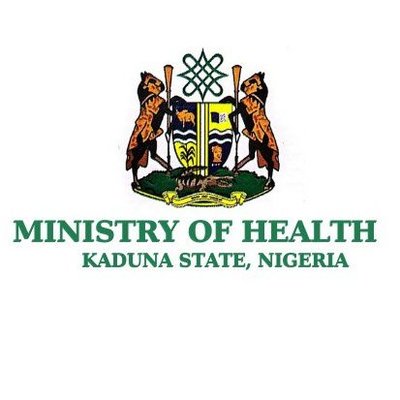Health
NAFDAC DG set five years roadmap, seek collaboration to attain WHO Maturity level 4
In a bid to enhance the fight against illicit drugs abuse in the country, the new Director General of National Agency for Food and Drug Abuse Control (NAFDAC), Prof. Monisola Christianah Adeyeye has mapped out five years Strategic goals to achieve between 2023 to 2028
Recalled that Prof. Adeyeye has been reappointed as DG of NAFDAC by President Muhammadu Buhari few days ago for another five years tenure.
Speaking during a press conference on Wednesday, Prof. Adeyeye said ” the agency will focus on Governance, Financial Management and Publicity. Which implies continuation of meaningful deployment use of human capital.
“Sustain Strong Governance Expansion of Directorates for greater and impactful management, obtain approval of Hazard and Regulatory Allowance (To be funded from NAFDAC Generated User Fees) , Secure approval of Scheme and Condition of Service , Sustain Strong Financial Management Continuity and Consolidation
Ensure well-trained staff on SAP Account Software
Increase IGR and User Fees by 20% from the current levels based on availability of more infrastructure and tools stated with more accountability.
She emphasized on publicity that continues use of additional media outlets to disseminate noteworthy NAFDACs activities.As initiated in October 2022 by deploying Social Media Staff to DGs Office
Use of Twitter, Facebook, Linkedin, etc.
“Use of drama and comedy artists to convey importance of quality, safe, efficacious, and wholesome regulated productsand to make the Media parley more structured.
On the new Initiatives, the NAFDAC boss revealed that the agency is geared towards attaining of the World Health Organization (WHO) Maturity Level 4 (ML4) thereby seeking the collaboration of other sister agencies.
She listed some of the steps as ” to Attain WHO ML4 and World Listed Authority (WLA) Status it will be enable by Global trade of Nigerian-made pharmaceuticals through collaborative registration with other regulatory agencies,Local Pharma manufacturers to be more competitive in AFCTA.
“Attain Vaccine Lot Release ML4 to position Nigeria strategically for vaccine manufacturing, Ensures Good Manufacturing Practice of Nigeria Vaccine Company
Assures quality, safety and efficacy of vaccines manufactured in Nigeria or imported.
“Establishes Vaccine Clinical Trial Research and Service Pipeline for the Local Manufacturer
Create Office of Womens Health Office
Understudy drug, cosmetics, and food products that affect women, the unborn and the child
Emphasize misuse or abuse of drug among women and impact on the child
More focus on maternal and child mortality and morbidity rate
According to her the newer Initiatives will be based on Supply Chain Monitoring, Continual sanitization of the Supply Chain Units to mitigate counterfeits and SFs.
“Scale up Track and Trace of Imported and locally Manufactured Pharmaceuticals, establish Structured and Active Tracking and Tracing through Solution Providers
Initiate Track and Trace of Foods. Continual vigilance to Reduce SFs, Counterfeit Medicines, and Narcotics
Enhancing Local Manufacturing (including Vaccines) Quality and Trade.
Others are training on Active Pharmaceutical Ingredients (API) Regulation, Develop NAFDAC-Industry API Manufacturing.
Health
FG bans use of foreign syringes, needles in tertiary hospitals


The Federal Government has mandated all Chief Medical Directors (CMDs) and Medical Directors (MDs) of Federal Tertiary Hospitals to procure needles and syringes solely from NAFDAC-approved local manufacturers.
The new directive is contained in a circular addressed to all CMDs and MDs signed by the Minister of State for Health, Dr Tunji Alausa, on Friday.
The minister said that the directive was aimed at boosting domestic production and shielding the country’s manufacturing sector from the influx of foreign goods.
The circular also mandated NAFDAC to stop issuing licences for the importation of foreign manufactured needles and syringes.
Alausa said the health sector had dentified local pharmaceutical industries that produce needles and syringes that were in serious trouble because of the practice.
He also said that out of the nine local pharmaceutical companies that produced needles and syringes eight years ago, six have folded up due to the dumping of largely substandard goods into the market.
“Mr President has directed that this must stop. We all agreed to take the necessary steps to immediately remedy this sad situation.
“Pursuant to this, NAFDAC has been mandated to stop issuing licences for the importation of foreign manufactured needles and syringes.
“It is also to de-list companies involved in the importation of these products going forward,” he said.
Alausa said ”all our tertiary hospitals are hereby directed to procure needles and syringes for your hospital needs from only the NAFDAC-approved local manufacturers listed below are listed either directly or through any of their vendors.
“EL-Salmat Pharmaceuticals Company Ltd Block, Brand Name: Salmaject, HMA Medical Ltd., with brand Name: Deleject and Afrimedical Manufacturing and Supplies Ltd.”
He also listed some of the distributors of the listed companies in some states of the Federation for easy access to assist in making the procurement process easier in the various institutions.
Health
KDSG trains 180 Red Cross volunteers on Lassa Fever intervention


The Kaduna State Ministry of Health has begun a three-day training for 180 Red Cross volunteers on Lassa fever intervention.
The training, which is facilitated by the ministry and funded by the Red Cross, is meant to equip the volunteers selected from 5 LGAs in the state with necessary skills.
The volunteers were drawn from Zaria, Igabi, Kaduna South, Kaduna North and Chikun Divisions.
The State Epidemiologist, Dr Jeremiah Dikwu, said the volunteers were trained with the knowledge needed to massively intervene during cases of Lassa fever in the state.
He said that the intervention would include Risk Communication and Active Case Search, Psychological First Aid, Rodent Control and Hygiene Promotion for the next 3 months.
Dikwu said the training started with 30 volunteers on surveillance and would end with the training of 150 volunteers on Risk Communication and Community Engagement .
According to him, Lassa fever is a viral hemorrhagic fever transmitted by rats.
He added that Lassa fever has been known since the 1950s, but the virus was not identified until 1969, when two missionary nurses died from it in the town of Lassa in Nigeria.
Dikwu added that Lassa fever was caused by a single stranded RNA virus and disseminated systemic primary viral infection.
“The main feature of fatal illness is impaired or delayed cellular immunity leading to fulminant viraemia,” he said
The epidemiologist said that Lassa fever presented symptoms and signs indistinguishable from those of febrile illnesses such as malaria and other viral hemorrhagic fevers such as Ebola.
“It is difficult to diagnose clinically but should be suspected in patients with fever (e”38°C) not responding adequately to antimalarial and antibiotic drugs.
“The most useful clinical predictors of Lassa fever are fever, pharyngitis, retrosternal pain, and proteinuria for diagnosis; and fever, sore throat, and vomiting for outcome,” Dikwu said.
He said that Ribavirin and general support were needed.
“Ribavirin is almost twice as effective when given intravenously as when taken orally, and if given within six days of the start of illness it may reduce deaths by 90 percent.
“Dehydration, oedema, hypotension, and poor renal function are common; fluid replacement or the use of blood transfusion requires careful monitoring,” he said.
Dikwu said the volunteers would be carrying out Risk communication and Community engagement, Active Case Search, Psychological First Aid, Rodent Control and Hygiene Promotion
Health
Assembly passes Kano Pre-Marital Health Screening Bill


Kano State House of Assembly has passed a bill for a law to compel intending couples to undergo HIV, hepatitis and sickle cell anaemia screening before marriage.
The passage followed deliberations in the Committee of the Whole House during plenary session,
presided over by the Speaker, Ismail Falgore on Monday in Kano.
After deliberations, the lawmakers approved the 3rd reading of the bill, read by the Deputy Clerk, Alhaji Nasiru Magaji.
Shortly after passage of the bill, the Majority Leader of the house, Lawan Hussein (NNPP-Dala), stated that “any person
intending to marry shall first submit self for medical examinations.”
He said the bill was considered and passed after the 3rd reading, following various legislative processes.
The leader further said that the bill was passed because the state had been battling with different health issues, including
HIV because people go into marriages without medical screening.
He said that the bill, if signed into law, would save many lives and curb the spread of life-threatening diseases.
“The bill will safeguard the health of citizens by institutionalising pre-marital testing to check the spread of diseases
like hepatitis, HIV and sickle cell anaemia,” he added.
-
capital market2 years ago
Rt.briscoe, FBNH, Others halts negative performance of stock market
-
Finance3 months ago
Court orders Sen. Victor Umeh to repay N136m bank debt to AMCON
-



 Abuja Update2 months ago
Abuja Update2 months agoUNDP, FG partnership needed to achieve inclusion, equity- Minister
-
Abuja Update1 month ago
Banks drive stock market performance with N147bn gain
-



 Business2 weeks ago
Business2 weeks agoTingo Group unveils Tingo Electric, Tingo Cola drink at Lagos launch
-



 Health3 weeks ago
Health3 weeks agoCapacity training will reduce migration of health workers- NPHCDA
-
News4 months ago
Oil thieves sponsoring malicious media campaign against Navy – Spokesman
-



 Infotech1 month ago
Infotech1 month agoWorld Backup Day: NITDA urges Nigerians to ensure backup of data






